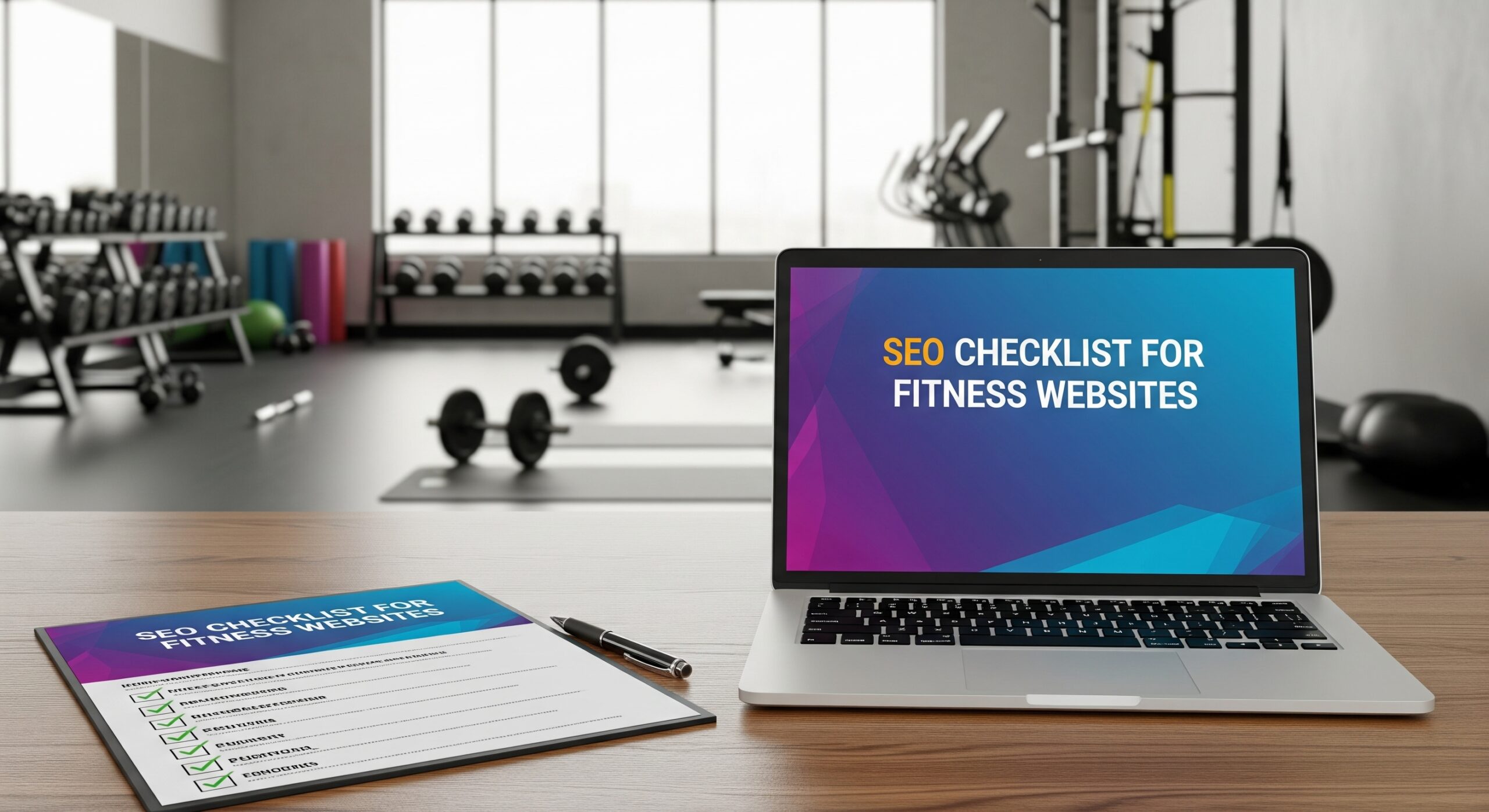Complete SEO checklist for fitness studio websites

Want your fitness website to rank higher and attract more clients? This SEO checklist for fitness websites breaks down everything your studio needs to optimize for search engines—from technical must-haves to content strategy tips.
Let’s dive into the ultimate SEO roadmap for your fitness studio.
Why seo matters for fitness studios
Search engines are how most people find fitness studios today. Whether someone’s searching for a “kickboxing gym near me” or “yoga classes in [city],” your studio won’t get discovered without strong SEO.
By optimizing your website, you can:
- Increase organic traffic without paying for ads
- Rank for high-intent local keywords
- Turn web visitors into paying members
On-Page SEO Essentials
Start with the foundation—your site’s content and structure.
1. Use Targeted Keywords
Research local and niche terms: Look for keywords people in your area search for, like:
- “best fitness studio in Denver”
- “HIIT gym for women in Austin”
- “martial arts classes for kids in Tampa”
Use tools like Google Keyword Planner or Ubersuggest to find relevant terms.
Place keywords strategically: Add your keywords in:
- Page title and meta description
- H1 and subheadings (H2/H3)
- First 100 words of body content
- Image alt text and file names
Avoid stuffing—keep it natural.
2. Optimize Meta Tags
Your title tag should be under 60 characters and include your keyword.
Your meta description should:
- Stay between 155–160 characters
- Summarize the value
- Include a CTA like “Book your free trial class today”
3. Use Clear Headings and Structure
Structure pages with a clear heading hierarchy:
- Use only one H1 (usually your page title)
- Break sections into H2s
- Nest details under H3s if needed
This makes content easy for users—and search engines—to scan.
4. Write for Humans, Not Just Bots
Use a conversational tone, short sentences, and clear value.
Example:
“Our studio offers a comprehensive selection of cardiovascular programs tailored to individual caloric expenditure.”
“We help you burn calories with fun cardio workouts that keep you coming back.”
5. Internal Linking
Link between related pages like:
- Blog posts → service pages
- Class descriptions → booking page
- Homepage → About or Contact Us
This keeps users engaged and boosts your SEO performance.
Technical SEO Must-Haves
Behind-the-scenes stuff matters too.
6. Mobile Optimization
Most gym searches happen on mobile. Your site should:
- Load fast on phones
- Be easy to tap and scroll
- Have click-to-call buttons
Use Google’s Mobile-Friendly Test to check your site.
7. Improve Page Speed
Slow sites frustrate users—and search engines. Tips to speed things up:
- Compress image sizes
- Use browser caching
- Minimize code (HTML, CSS, JavaScript)
Use Google PageSpeed Insights to get a score and tips.
8. Secure Your Website (HTTPS)
Google prioritizes secure sites. If your URL still starts with “http,” ask your hosting provider to upgrade you to HTTPS with an SSL certificate.
9. Create and Submit a Sitemap
A sitemap tells Google what pages exist on your site. Most platforms like WordPress or Squarespace offer plugins to auto-generate this. Then submit it through Google Search Console.
Local SEO Optimization
Fitness studios depend heavily on local search.
10. Optimize Your Google Business Profile
Claim your Google Business Profile and make sure it’s up to date with:
- Business name and hours
- Address and phone number
- Photos and class schedule
- Positive reviews
This helps you show up on Google Maps and local packs.
11. Use Consistent NAP (Name, Address, Phone)
Make sure your NAP is the same across:
- Website footer
- Contact page
- Local directories (Yelp, Facebook, etc.)
Inconsistent info can hurt local rankings.
Content and Engagement
12. Start a Blog with Fitness Tips
Regular blog posts show Google your site is active and helpful. Blog about:
- Workout tips
- Nutrition advice
- Studio updates
- Client success stories
Be sure to include internal links and CTAs in each post.
13. Add Schema Markup
Schema helps Google understand what your site is about. Use fitness-specific schema like:
- LocalBusiness
- Event (for classes)
- Review
Tools like Google’s Rich Results Test help check your code.
Related – The Ultimate Guide to Fitness Club Management & Operations
Final Thoughts
Following this SEO checklist for fitness websites ensures your studio stands out online, ranks higher in local searches, and attracts the right audience.
You don’t have to master everything overnight—start with the basics and build over time.
Ready to grow your fitness studio with better SEO? Zen Planner’s all-in-one fitness business software helps streamline your operations while you focus on building a brand that ranks. Book a Demo today to see how Zen Planner can support your growth.







